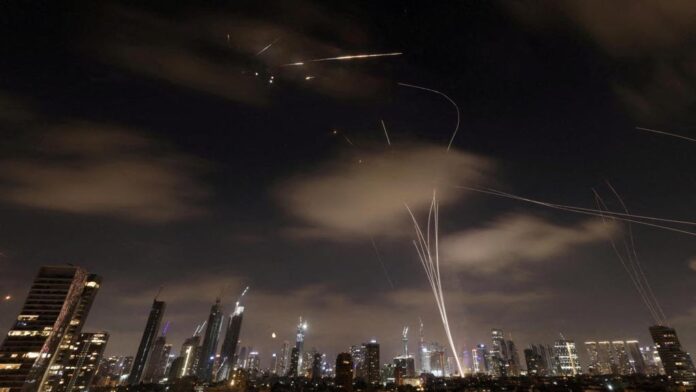A dangerous new chapter in Middle East tensions unfolded Wednesday as Israel and Iran exchanged heavy missile fire for the sixth consecutive day, drawing global concern and setting the stage for a potentially wider confrontation.
As the sun rose over the region, Iran’s Supreme Leader Ayatollah Ali Khamenei declared ominously on social media: The battle begins.
His words followed a wave of Israeli airstrikes targeting Iranian ballistic missile sites in Isfahan and projectiles intercepted over Tehran, sparking panic and evacuations in parts of the Iranian capital.
Across the Atlantic, U.S. President Donald Trump dismissed Khamenei as an easy target and warned that America’s patience is wearing thin, demanding Iran’s unconditional surrender.
Sources familiar with internal deliberations told CNN that Trump is increasingly leaning toward military action, including strikes on Iran’s nuclear infrastructure.
Diplomacy, they said, is quickly falling out of favour.
Following a high-level national security meeting in the White House Situation Room, the U.S. surged over 30 aerial refueling tankers to the region, signalling serious preparations for long-range strike capabilities.
In Tehran, Iranian air defenses were active throughout the night, responding to what Israel described as targeted operations against military installations and ballistic missile infrastructure.
Israel’s Defence Minister, Israel Katz, confirmed that planned strikes were underway in key Iranian cities, including Tehran and Isfahan.
On the Israeli front, the military said it had intercepted a barrage of Iranian missiles, with loud explosions rocking Tel Aviv.
Over 2,700 Israelis have been evacuated from high-risk zones since the conflict erupted.
Iran’s state-affiliated Mehr News Agency confirmed the launch of Fattah missiles, which Tehran claims are hypersonic.
Analysts, however, argue that most ballistic missiles already achieve hypersonic speeds, casting doubt on any unique strategic advantage.
Beyond the physical battlefield, Iran’s Cyber Security Command accused Israel of waging a large-scale cyber war on critical digital infrastructure. The full extent of the damage is not yet clear, but it adds a dangerous layer to an already volatile confrontation.
China’s President Xi Jinping, in his first statement on the matter, said Beijing is “deeply concerned” by the violence. China, a key ally and trade partner of Iran, condemned any action that violates the sovereignty and territorial integrity of nations.
Meanwhile, oil and gas markets responded swiftly. Brent crude prices hit their highest levels in nearly five months, with the energy sector bracing for significant supply disruptions.
Rising fuel costs are already rippling through global markets, including the U.S., where prices at the pump have spiked.
While President Trump has claimed Iran is “very close” to acquiring nuclear weapons, U.S. Director of National Intelligence Tulsi Gabbard contradicted him during congressional testimony, stating the intelligence community maintains that Iran is not currently building a nuclear bomb.
Amid escalating threats, the U.S. Embassy in Israel announced a temporary closure from Wednesday to Friday. All staff and their families have been ordered to shelter in place until further notice.








